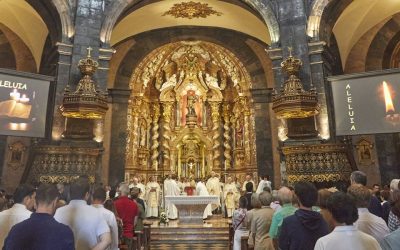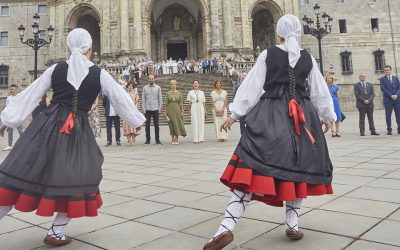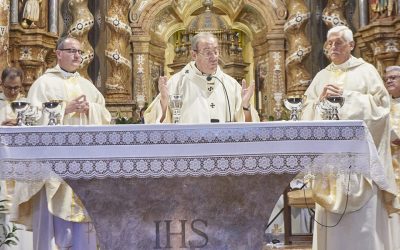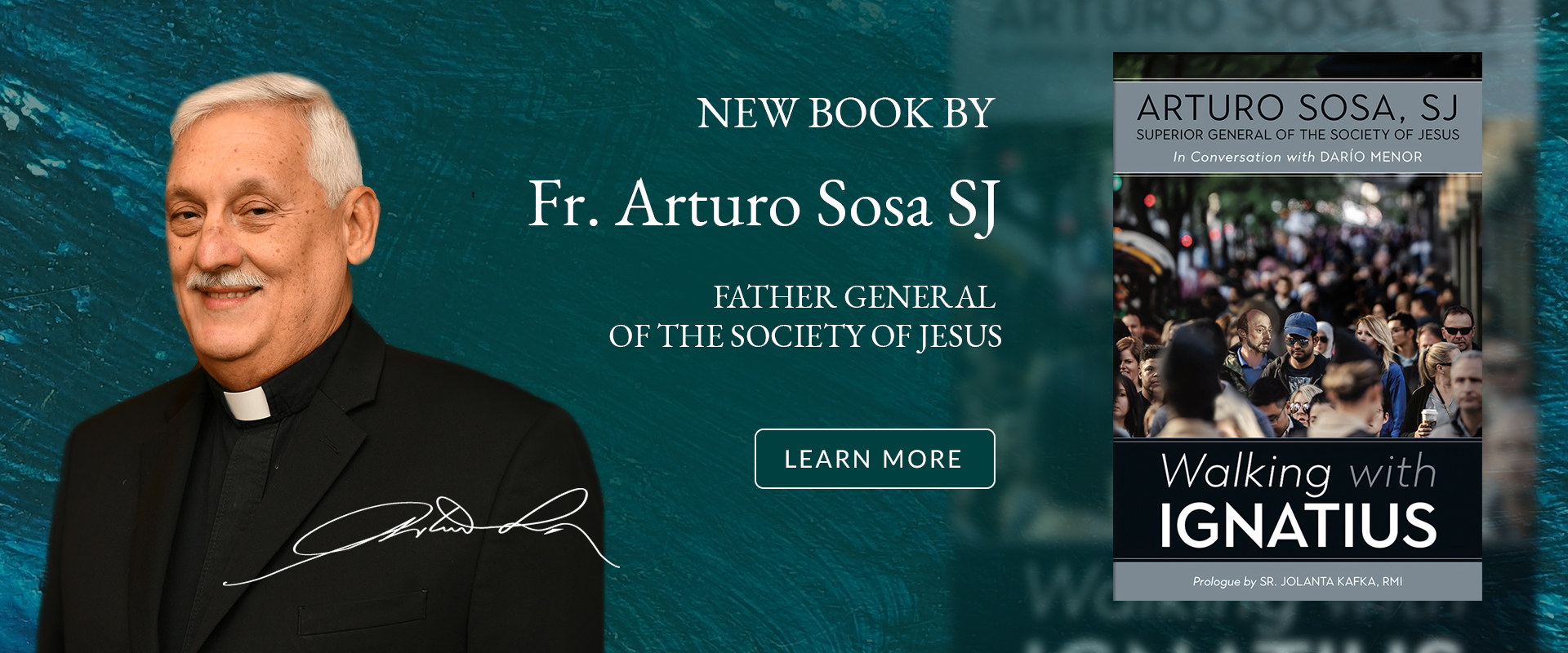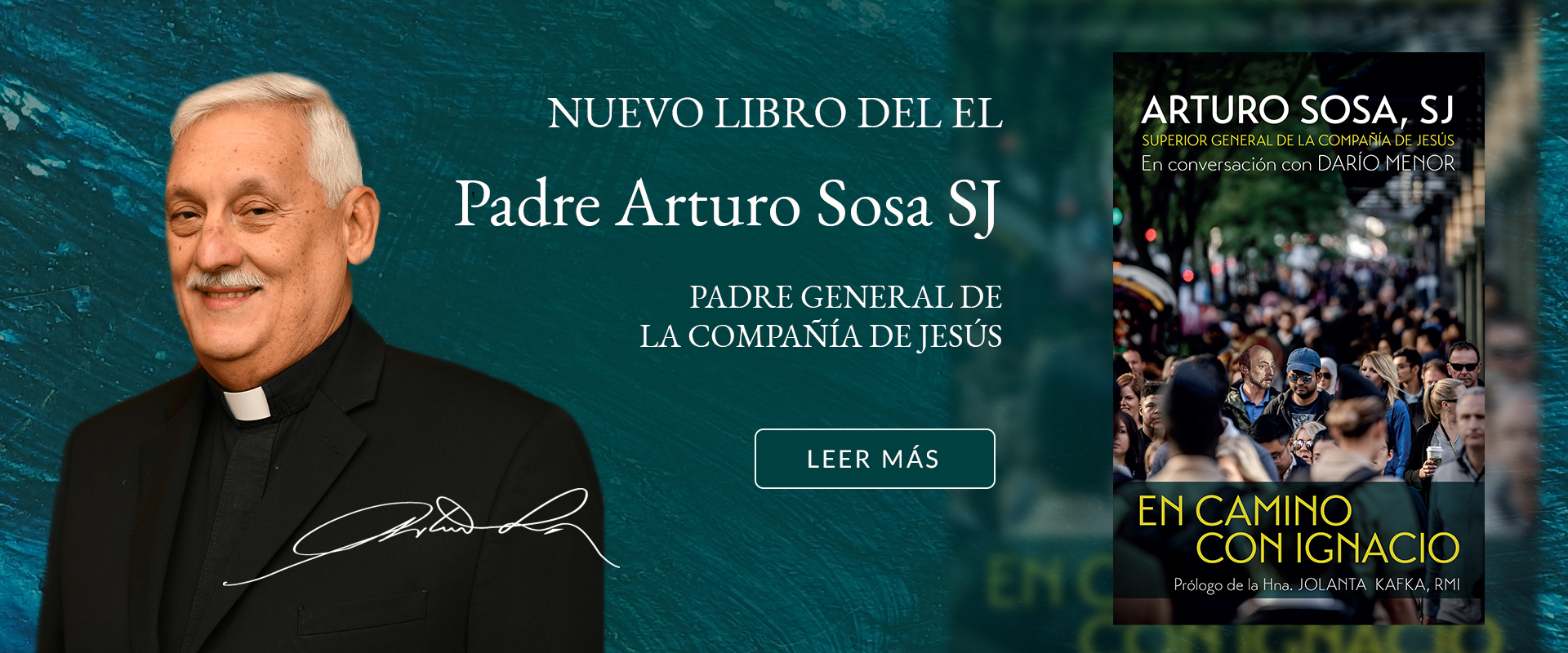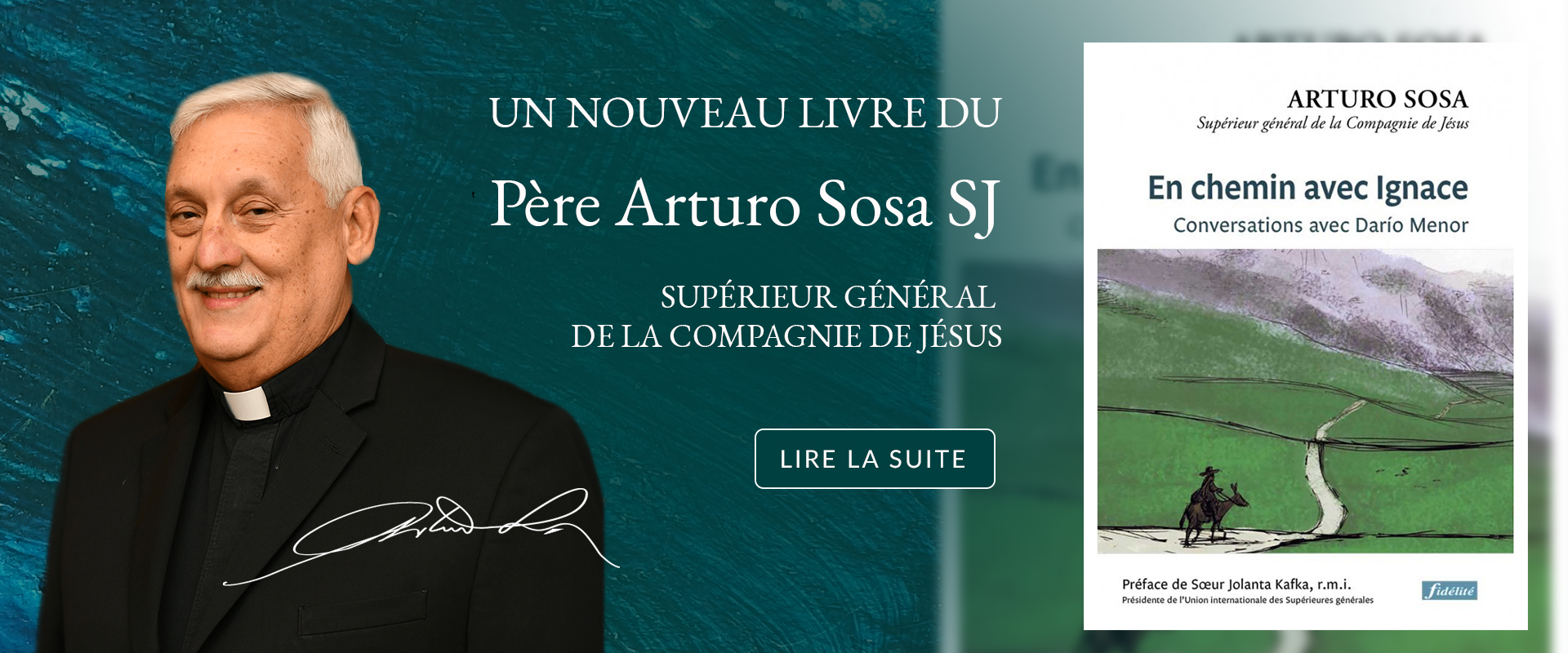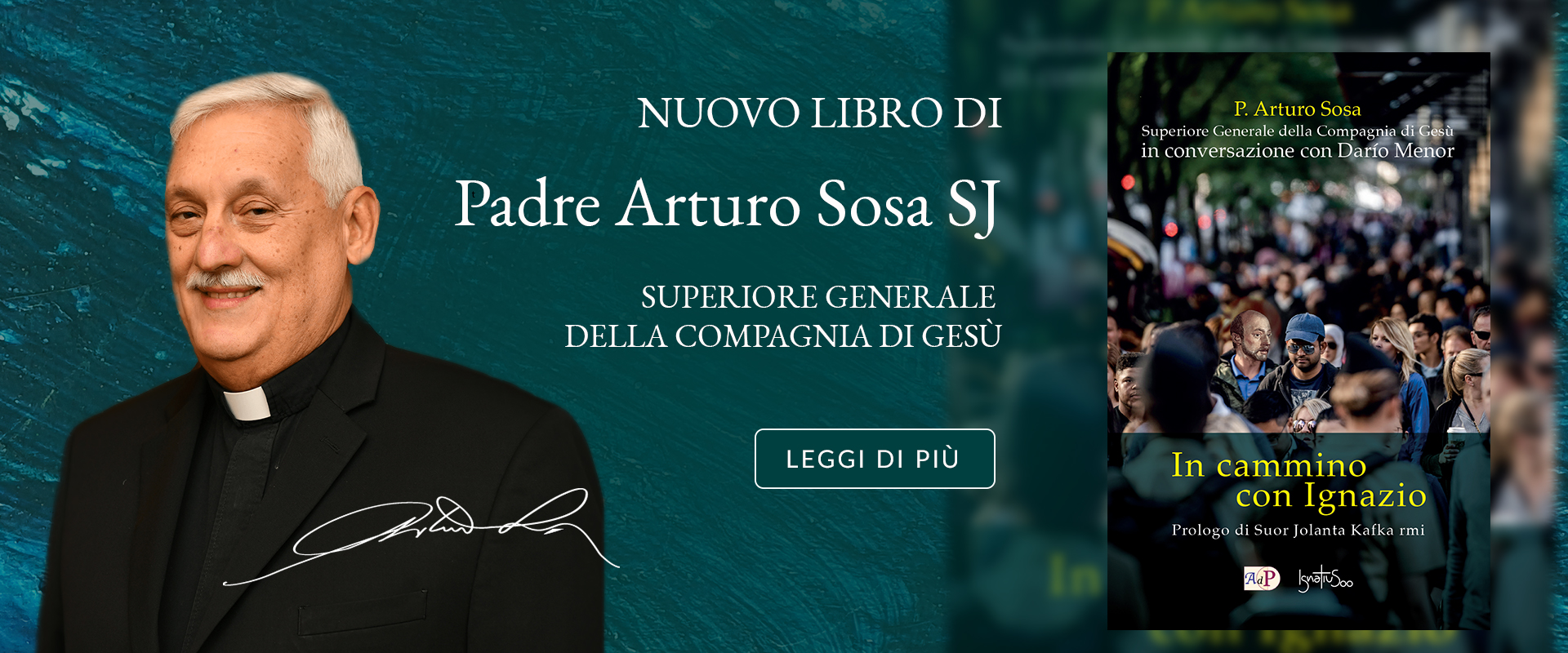During this Ignatian Year, we are publishing a series of homilies that Fr. General Kolvenbach held on the feast days of St. Ignatius. In this homily, Fr. Kolvenbach focuses on the docility to the Spirit.
Church of Saint Ignatius, Rome, July 31st 1998
Celebrating the feast of Saint Ignatius in this year which the Holy Father has consecrated to the Holy Spirit, we ask that Master Ignatius recount his spiritual experience, his life in the Spirit.
Ignatius rarely mentioned the Spirit and yet he was omnipresent in his life and writings. From his conversion on, Ignatius was moved by the Spirit and wanted to be guided only by God’s Breath. His daily preoccupations were to progress in the Spirit, to live in the fervour of the Spirit, to walk in faithfulness to the Spirit and avoid falling into a cooling down of the Spirit. Hence his esteem for the Spirit’s greatest gift – which is praying discernment – in which Ignatius never ceased to search for what the Holy Spirit wished of him both in the vast orientations of his apostolic life and in the concrete specifications of daily life. It was the Spirit who led and accompanied him on this path towards God; it was the Spirit who made him discover God in all things.
Ignatius well knew that the Spirit is living water and breath, but in his experience the Spirit was above all light and fire: a luminous presence which made his love clairvoyant, the fire of the prophets and the fire of the burning bush which inflamed his heart with God. When Ignatius began noticing what was happening within him he discovered many inclinations, ideas and desires. His spiritual diary bears witness to his concern that he remain like the needle in a compass, in perfect equilibrium in the midst of all these good and less good inspirations, so that the Spirit might incline the compass in whatever direction he wanted in the service of the greater glory and praise of God our Lord. This availability to be like a blank cheque for the Spirit filled Ignatius’ life with surprises and unexpected events.
Even during his spiritual youth Saint Ignatius had never thought of becoming a priest, of founding a religious order, of assuming the responsibility of superior general, of embarking on founding colleges and universities. His personal desire was to remain a pilgrim and accomplish the work, the labour of salvation, which the Lord himself had begun in the Holy Land. He had many plans and projects, but his choice would be what the Spirit inspired. And each time the Spirit surprised him, opening new and unexpected paths. But Ignatius believed in the Holy Spirit who fills the universe and was at work in Christ’s Church and in his most intimate self, and he followed the Spirit’s inspiration for the pure service of his divine Majesty.
It is true that for fear of the Inquisition Ignatius rarely mentioned the Spirit in the booklet of the Exercises, but the Spirit, this hidden God, hides under many names such as love and consolation, election and spiritual, and the Exercises themselves would not be spiritual without the working Spirit. Because the only goal of these Spiritual Exercises is that of opening an area of freedom, of listening and of welcome in us so that the Spirit may intervene and enable us, through the unction of the Spirit, to make the concrete choices Christ made and to make them today in our daily life as Christians, as other Christs, each one according to the vocation to which the Spirit calls him. Thus Ignatian spirituality is not merely a technique for wisely making important decisions but a passion for scrutinizing what the Spirit wishes to do in us. Ignatius did not want to give order to his life in order to extinguish the Spirit but to give it every freedom to act in us. He did not observe what occurred within him out of psychological interest or to know himself, but solely so that his life might be moved by the Spirit for pure service to the Father in the steps of the Son.
Master Ignatius did not conceal the fact that it is sometimes difficult to discern what the Spirit expects of us. Every good idea does not necessarily stem from the good Spirit, and a wicked spirit is not necessarily hiding behind a wicked thought. In his praying discernment Ignatius learnt with Saint Paul that the Evil One willingly disguises himself under the appearances of an angel full of light. We must discern the fruit of the Spirit in a field where – as in one of Jesus’ parables – it is not easy to distinguish the good grain from the weeds. But, for Ignatius, believing in the Spirit meant that our own night and darkness are of little importance, the spirits which obsess us are of little importance, the unction of the Spirit is bound to us like God’s Love, like the totality of his loving attention. And so it is not surprising that the path of the Spiritual Exercises attains Love in the Spirit with new eyes and a new heart. A Spirit who always acts lovingly. This is why Ignatius, who usually used sober expressions, insisted on repeating that the unction of the Spirit touches our heart gently, delicately, suavely, without clamour and without violence, like a drop of water entering a sponge.
Ignatius recognized himself in the gospel of today’s festivity, in the Lord’s desire to bring fire on earth, and he shared Christ’s passion to see it lit everywhere in the world. But he was convinced that this fire would not be lit if our hearts did not burn with the love of the Holy Spirit. To give us again the gift of this Spirit the Lord sits down at table with us to share his body and blood with us. Did not a fire seem to burn within us when, in his Spirit, he conversed with us along the way?
Read the other homilies here.


